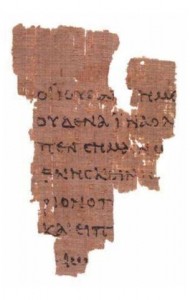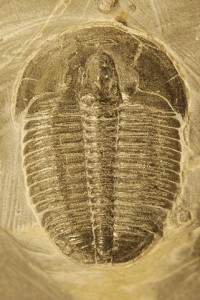 In an earlier post, we explored some of the prevailing theories for the origin of the universe. There is one other theory that attempts to explain away the need for God as Creator. It’s known as the Multiverse Theory. Let’s take a critical look and see if it holds up. Continue reading
In an earlier post, we explored some of the prevailing theories for the origin of the universe. There is one other theory that attempts to explain away the need for God as Creator. It’s known as the Multiverse Theory. Let’s take a critical look and see if it holds up. Continue reading
Monthly Archives: August 2014
They Died for A Lie?
The original disciples of Jesus—those to whom he had assigned the task of spreading his message throughout the world—made great claims about His resurrection. The lives of the disciples after Jesus’ crucifixion, as well as their deaths, make a powerful argument for the truth of their claims. Let’s explore how. Continue reading
Is Faith Just a Crutch for Weak People?
A common objection to religion in general and Christianity in particular, is that it serves as a type of emotional “crutch.” Often, those who use this argument think of Christians as weak-minded, self-deluded, and in need of some fairy tale “protector” to help them through life. They are contrasted to the more intellectual and stronger-willed atheist that can handle the harsh realities of life. Is this an accurate characterization of Christians or people of faith? More importantly, is it a legitimate reason to choose atheism? Continue reading
Has The New Testament Been Reliably Passed Down to Us?

The Rylands Library Papyrus P52, thought to be the earliest extant fragment of a New Testament text. It contains part of the Gospel of John and dates between 117-138 A.D. It is displayed in a climate-controlled case at the John Rylands Library in Manchester, England.
The New Testament is a diverse collection of 27 books, mostly written during the first century A.D. by a range of authors. Four of these books, called the gospels, relate the life, ministry, death, and resurrection of Jesus. Another book, Acts of the Apostles, traces the early history of the Christian church as it was formed and began to spread. Twenty-one books are letters, written by various authors (one of whom was a very important missionary, Paul). These letters, or epistles, consist of doctrine, counsel, conflict resolution in the early church, and so on. A final book, Revelation, is a work of apocalyptic prophecy. Over the early centuries of Christianity, these 27 books became recognized as the church’s official canon.
Given the awesome span of time between their original writing and today, it’s no surprise that we no longer have the original texts. The books come down to us today thanks to the work of monks and scribes who, over the centuries, copied and recopied the scrolls, attempting to faithfully reproduce the texts and preserve them for future generations.
Creation Vs. Evolution

Fossilized trilobite: Thousands of different types of trilobite thrived in earth’s oceans from the early Cambrian period through the Permian period. They “popped” into the fossil record as a diverse and widespread species…and stayed that way until they went extinct.
Few issues within the faith-based arena cause as much division as the question of creation vs. evolution. The popular stereotypes portrayed in the media, and unfortunately accepted by many, are those of the religious “Bible thumper” that unquestionably accepts the biblical account of divine, special creation versus the more educated and objective scientist who “follows the evidence wherever it leads” and supports evolution. As is typical, however, the stereotypes are far from accurate. In this article, we will review the evidence and show how an objective scientific view should actually oppose evolution and support special creation.
First, we have to define the sides of the debate. For purposes of this article, we are focusing on creation vs. evolution in terms of biology. The similar issues related to cosmology, geology, etc. are completely separate from this discussion. As such, the issue of the age of the earth and universe will be discussed at a later time. While these topics are often discussed together, they are actually separate. Continue reading


